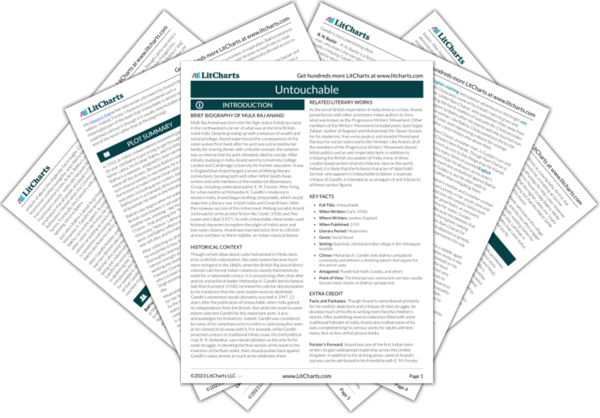Just as Bakha predicted, Lakha sides with the high-caste people over his own family, chiding Bakha for failing to isolate himself sufficiently. Interestingly, however, Lakha’s kneejerk instinct to blame Bakha is not just because he has internalized others’ prejudice. Instead, Lakha knows that outcastes are not protected legally—and that a failure to defer to upper-caste people could put his children in real danger. Even as Lakha seems cruel and unsympathetic, then, the novel also demonstrates his profound, protective paternal instinct.
